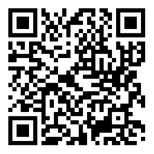BIMHSE Archive
From Theory to Practice: Integrating Cognitive Load Theory and Metacognition for Improved Learning Outcomes (A two-part seminar)
- Date / Time
30 Jun 2025
12:30pm-2:00pm
12:30pm-2:00pm
- Location
Room LG-S2, G/F, Laboratory Block, Faculty of Medicine Building / Zoom
- Abstract
Seminar Recording (HKU Portal login required)
Part I: Cognitive Load Theory in Clinical and Health Sciences Education
Due to ever increasing overpacking of medical and health science curricula; time constraints imposed on face-to-face instruction; and growing integration of educational technologies in teaching and learning, teachers must apply proven strategies to increase instructional efficiency.
Learning Theories built on the current understanding of human cognitive architecture and on decades of pedagogical research, such as the Cognitive Load Theory and the Cognitive Theory of Multimedia Learning, provide instructional principles which teachers of biomedical sciences should leverage to improve both student satisfaction and the efficacy of their instructional sessions and materials (e.g. PowerPoint presentations). In this seminar, participants will be introduced to the basic concepts that underly the aforementioned theories as well as learn to apply evidence-based instructional principles to enhance their teaching materials and to support their future educational research.
Part II: Metacognition in Clinical and Health Sciences Education
This part of the seminar provides an overview of metacognition – the awareness and regulation of one's thinking processes – to clinical and health sciences teachers. Participants will discover how metacognitive strategies improve self-directed learning among students. The session presents classroom-ready techniques, including think-aloud protocols and reflection prompts, that help students identify knowledge gaps and regulate their learning. Participants will also gain practical approaches to foster reflective practitioners equipped for complex clinical environments, ultimately enhancing clinical and health sciences students’ learning through improved clinical reasoning and lifelong learning skills.
All HKU colleagues are welcome.
- Speaker(s)
Part I: Mr. Guilherme Fonseca, School of Biomedical Sciences
Part II: Mr John Ian Wilzon Dizon, BIMHSE
- Descriptions
- Booking
Bookings are closed for this event.
- Add to calendar
